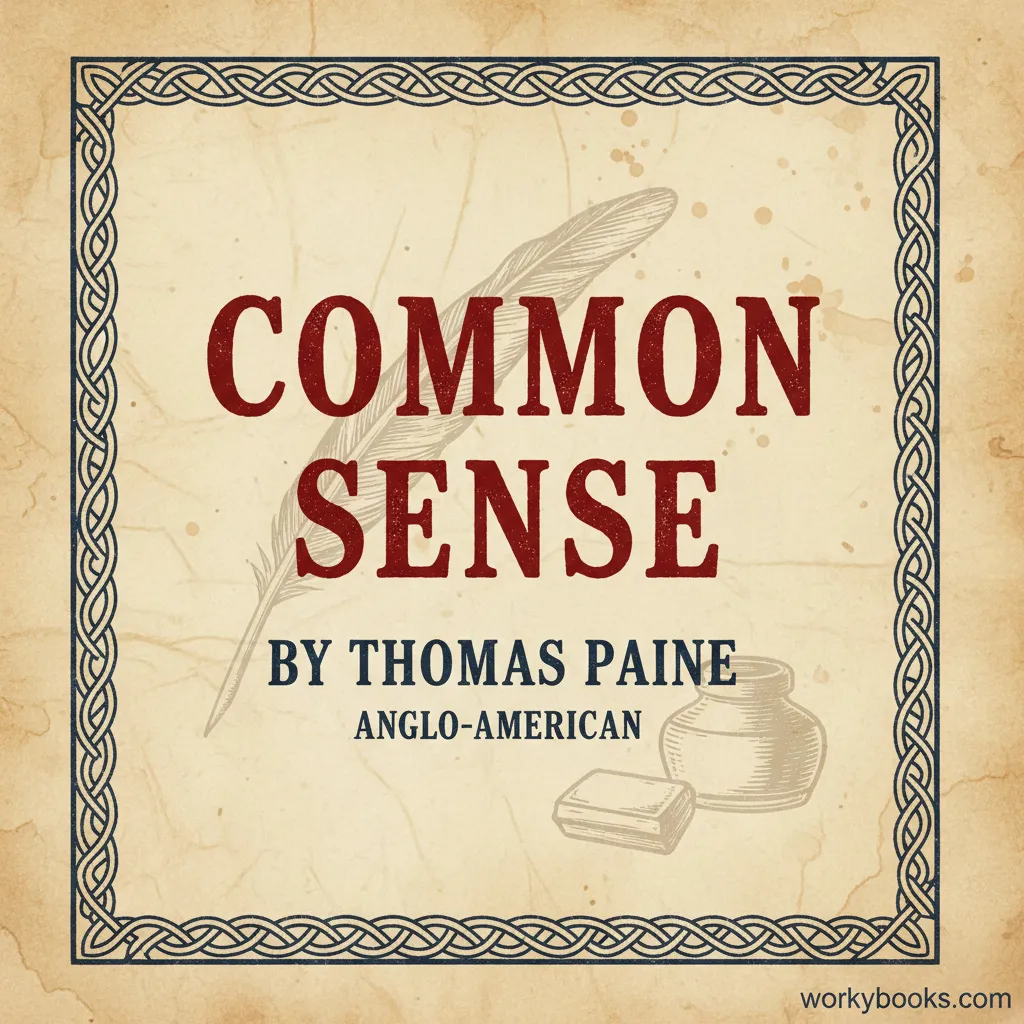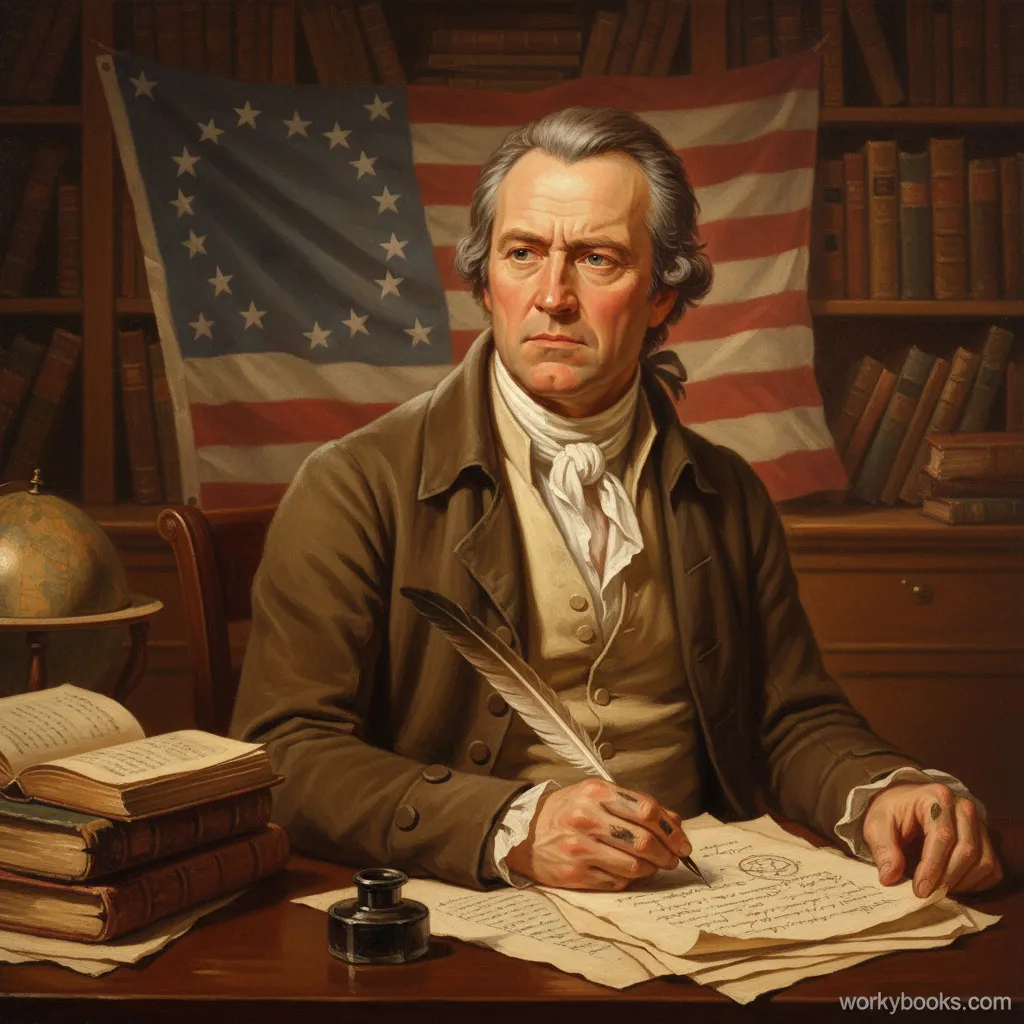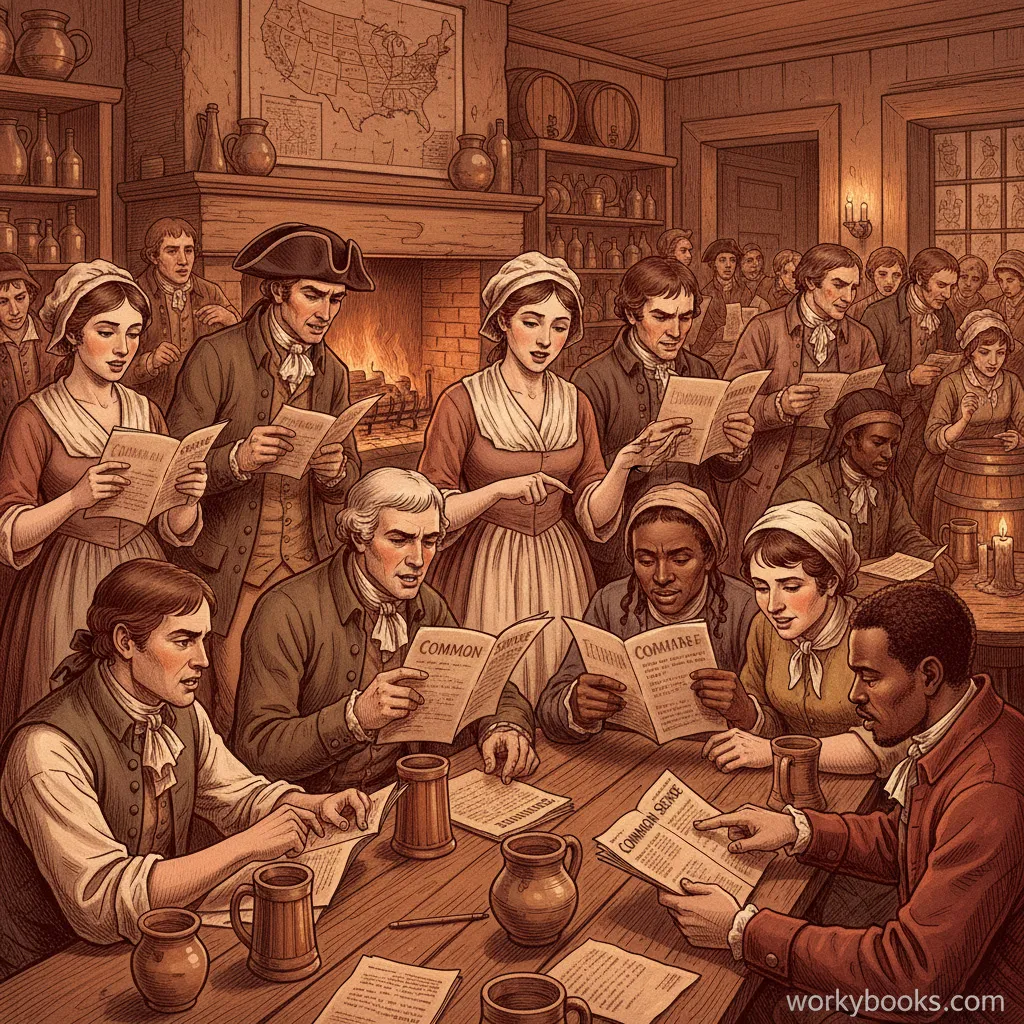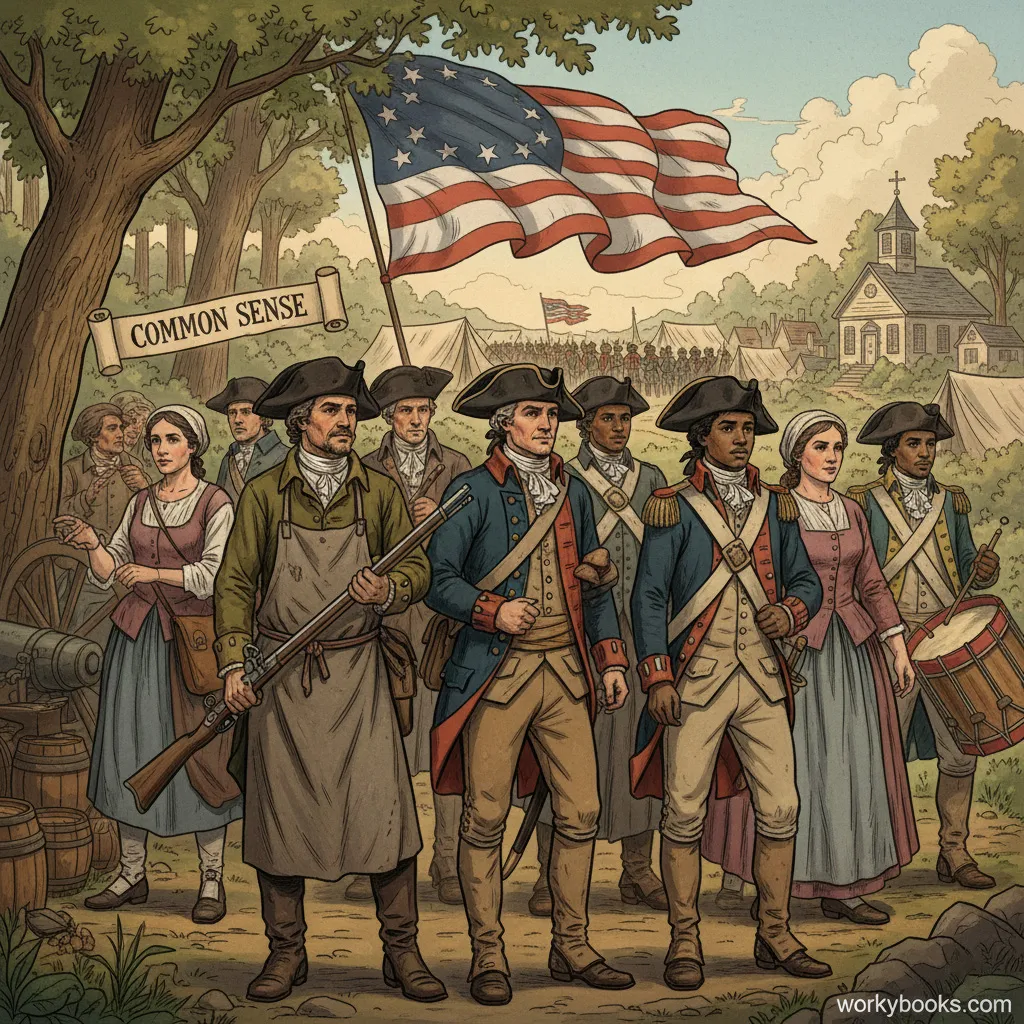Common Sense by Thomas Paine
Discover how a simple pamphlet helped change American history and inspired the fight for independence!
What Was Common Sense?

Common Sense was a pamphlet written by Thomas Paine in 1776 that argued for American independence from Britain. It was written in simple, direct language that ordinary people could understand, unlike most political writing of the time which used complex language.
The pamphlet became incredibly popular, selling over 500,000 copies in its first year. At a time when the American colonies had about 2.5 million people, this was like a bestseller today selling over 60 million copies! Common Sense helped convince many Americans that complete independence from Britain was not just possible, but necessary.
Did You Know?
Common Sense was published anonymously at first - Thomas Paine didn't put his name on it! He wanted the ideas to be more important than the author.
Thomas Paine

Thomas Paine was born in England in 1737 and came to America in 1774, just two years before writing Common Sense. He had worked many different jobs in England but wasn't successful. When he arrived in Philadelphia, he began writing for Pennsylvania Magazine.
Paine believed strongly in freedom and rights for all people. He wasn't wealthy or from an important family, which helped him connect with ordinary Americans. After Common Sense, he wrote other important works during the American Revolution, including "The American Crisis" papers which began with the famous words: "These are the times that try men's souls."
Early Life
Born in England in 1737, worked as a corset maker and tax collector
Move to America
Came to Philadelphia in 1774 with a letter of introduction from Benjamin Franklin
Writing Career
Began writing for Pennsylvania Magazine before publishing Common Sense in 1776
Common Sense Arguments

Thomas Paine made several powerful arguments in Common Sense that convinced many Americans to support independence:
- Against Monarchy: Paine argued that kings and queens weren't chosen by God as many believed. He called monarchy "ridiculous" and said all people are created equal.
- Economic Independence: He explained that America didn't need Britain for trade and would be better off economically without British control.
- Size and Distance: Paine pointed out that a small island (Britain) shouldn't rule a large continent (America), especially when they were separated by an ocean.
- Natural Rights: He argued that government should protect people's natural rights, not take them away.
Paine wrote in a style that was easy to understand, using examples from the Bible and everyday life. He called the idea of a small island ruling a large continent "common sense" - which is how the pamphlet got its name.
Impact of Common Sense

Common Sense had an enormous impact on American history:
Publication
Common Sense published in January 1776, selling over 500,000 copies
Changing Minds
The pamphlet convinced many undecided colonists to support independence
Declaration
Thomas Jefferson drew on Paine's ideas when writing the Declaration of Independence
Lasting Influence
Common Sense inspired democratic movements around the world
The pamphlet was so influential that John Adams said, "Without the pen of Paine, the sword of Washington would have been wielded in vain." Common Sense helped create the public support needed for the Continental Congress to declare independence in July 1776.
Common Sense Quiz
Test your knowledge about Thomas Paine's Common Sense! Answer all 5 questions to see how much you've learned.
Frequently Asked Questions
Here are answers to common questions about Common Sense:
Common Sense Trivia
Discover amazing facts about Thomas Paine's Common Sense!
Anonymous Author
Common Sense was originally published anonymously with the author listed only as "An Englishman." Thomas Paine didn't want his identity to distract from his arguments.
Widespread Influence
George Washington had Common Sense read aloud to his troops to inspire them. The pamphlet was so popular that it was often read in public gatherings since many people couldn't read.
Simple Language
Paine deliberately used simple words and short sentences so that even people with little education could understand his arguments. This was very different from most political writing of the time.
Lasting Legacy
Common Sense has never been out of print since it was first published in 1776. It continues to be studied as one of the most influential documents in American history.





